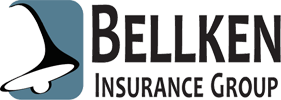5 Ways to Reduce Your General Liability Insurance Premiums in Florida
See How We're Different
or call us: 954-233-0733
If you own a business in Florida, having general liability insurance is essential to
protect yourself against potential lawsuits
and claims. However, the cost of insurance premiums can add up over time and have a significant impact on your business expenses. To help you reduce your
general liability insurance premiums in Florida, here are five effective strategies to consider.
Understanding General Liability Insurance in Florida
Before we delve into reducing your insurance premiums, it's important to understand what general liability insurance is and why it is crucial for your business. General liability insurance provides coverage for claims of bodily injury, property damage, and personal injury that may occur during your business operations. This insurance can safeguard your business assets and reputation in the event of a covered claim.
General liability insurance is designed to protect businesses from financial loss due to legal claims. It offers coverage for a wide range of incidents, including accidents, injuries, and property damage. For example, if a customer slips and falls in your store, general liability insurance can help cover their medical expenses and any legal fees that may arise from the incident.
One of the main reasons why general liability insurance is important is because it can help protect your business from lawsuits. In today's litigious society, even a small accident can lead to a costly legal battle. Without insurance, your business could be responsible for paying for medical bills, legal fees, and even damages awarded to the injured party.
The Importance of General Liability Insurance
Investing in general liability insurance is vital because it offers protection against unexpected incidents that may result in legal action. Whether it's a slip-and-fall accident on your premises or a lawsuit for advertising infringement, having general liability insurance can help cover legal fees, settlements, and judgments.
General liability insurance not only provides financial protection but also helps maintain your business's reputation. When customers see that you have insurance coverage, it instills confidence in your business and shows that you are prepared for any unforeseen circumstances. This can be especially important for businesses that interact with the public, such as retail stores, restaurants, and service providers.
Additionally, many clients and business partners may require you to have general liability insurance before they enter into any agreements or contracts with your business. By having this coverage in place, you can meet these requirements and potentially secure more business opportunities.
How General Liability Insurance Works in Florida
In Florida, general liability insurance typically operates on a claims-made basis. This means that the policy covers claims made while it is active, regardless of when the incident occurred. It's important to understand the terms and conditions of your policy to ensure you have the appropriate coverage for your business activities.
When you purchase general liability insurance in Florida, you will need to provide details about your business operations, such as the type of business you have, the number of employees, and the annual revenue. This information helps insurance providers assess the level of risk associated with your business and determine the appropriate coverage and premium.
It's important to review your general liability insurance policy regularly to ensure that it still meets the needs of your business. As your business grows and evolves, you may need to adjust your coverage limits or add additional coverage options to adequately protect your assets.
Understanding general liability insurance in Florida is essential for any business owner. By having this coverage in place, you can protect your business from financial loss and legal disputes, giving you peace of mind to focus on growing your business.
Strategies to Lower Your Insurance Premiums
Now that we understand the basics of general liability insurance, let's explore some strategies to reduce your insurance premiums:
Regularly Review Your Coverage
As your business evolves, your insurance needs may change. Periodically review your coverage with your insurance agent to ensure you have the right amount of coverage for your business operations. By optimizing your coverage, you can avoid overpaying for unnecessary protection.
During these reviews, consider factors such as the size of your business, the nature of your operations, and any recent changes that may affect your insurance needs. For example, if you have expanded your business to include new services or products, you may need to adjust your coverage accordingly. By staying proactive and keeping your insurance agent informed, you can ensure that your coverage remains up to date and tailored to your specific needs.
Additionally, it's important to stay informed about any changes in the insurance industry that may impact your coverage. Insurance regulations and requirements can vary by state and industry, so staying up to date with these changes can help you make more informed decisions about your coverage and potentially find ways to lower your premiums.
Increase Your Deductible
By opting for a higher deductible, you can lower your insurance premiums. However, keep in mind that you'll need to pay this amount out of pocket in the event of a claim. Assess your risk tolerance and financial capabilities to determine the optimal deductible for your business.
Increasing your deductible can be a cost-effective strategy if you have a low-risk business or if you have sufficient financial reserves to cover the deductible amount. It's important to carefully evaluate the potential savings versus the potential financial impact of a higher deductible. Consider factors such as your claims history, the likelihood of a claim occurring, and your ability to absorb the deductible amount without significant financial strain.
It's worth noting that while a higher deductible can lower your premiums, it's essential to strike a balance. Opting for an excessively high deductible may leave you vulnerable to financial hardship in the event of a claim. Finding the right balance between cost savings and financial protection is key.
In conclusion, regularly reviewing your coverage and considering an increase in your deductible are two effective strategies to lower your insurance premiums. By staying proactive and making informed decisions, you can optimize your insurance coverage and save on costs without compromising the protection of your business.
Risk Management and Loss Prevention
Implementing risk management and loss prevention measures can help mitigate potential claims, making your business less risky to insure. By reducing the likelihood of accidents and incidents, insurance companies may offer lower premiums. Here are some strategies to consider:
Implementing Safety Measures
Creating a safe environment for your employees and customers is crucial. Implement safety protocols, such as regular equipment maintenance, providing proper training, and enforcing safety guidelines. These precautions can help prevent accidents, resulting in lower insurance premiums.
When it comes to regular equipment maintenance, it is essential to have a schedule in place. Regularly inspecting and servicing your equipment not only ensures its optimal performance but also reduces the risk of malfunctions or breakdowns that could lead to accidents or property damage.
Providing proper training is another crucial aspect of implementing safety measures. By investing in comprehensive training programs, you can ensure that your employees are equipped with the knowledge and skills necessary to perform their tasks safely. This includes training on how to handle equipment properly, follow safety procedures, and identify potential hazards in the workplace.
Enforcing safety guidelines is equally important. Clearly communicate your safety policies to all employees and ensure that they understand the consequences of non-compliance. Regularly remind and reinforce these guidelines to maintain a culture of safety within your organization.
Employee Training and Risk Management
Well-trained employees are more likely to follow safety protocols and reduce the risk of accidents. Invest in comprehensive training programs to ensure your staff understands the importance of safety and risk management. This proactive approach can help minimize incidents and lower your insurance costs.
When it comes to employee training, it is essential to cover a wide range of topics. This includes not only safety procedures but also risk management strategies. By educating your employees on how to identify and assess potential risks, they can contribute to the overall risk management efforts of your organization.
Furthermore, consider providing ongoing training and refresher courses to keep your employees up-to-date with the latest safety practices and risk management techniques. This continuous learning approach ensures that your staff remains knowledgeable and vigilant, reducing the likelihood of accidents and incidents.
In addition to training programs, encourage open communication within your organization. Establish channels for employees to report any safety concerns or near-miss incidents. By fostering a culture of reporting and learning from these incidents, you can identify potential risks and take proactive measures to prevent accidents before they occur.
Remember, risk management and loss prevention should be an ongoing effort. Regularly review and update your safety protocols and training programs to adapt to changing circumstances and industry best practices. By continuously improving your risk management strategies, you can create a safer work environment and potentially lower your insurance premiums.
Leveraging Discounts and Bundles
Insurance companies often offer discounts and bundles that can help reduce your premiums. Explore the following options:
Multi-Policy Discounts
If you have multiple insurance policies, such as property insurance or workers' compensation, consider bundling them under the same insurance provider. This can often lead to significant discounts on your overall premiums.
When you bundle multiple insurance policies together, you not only simplify your insurance management but also save money. Insurance companies offer multi-policy discounts as an incentive for customers to consolidate their coverage under one provider. By doing so, you can enjoy the convenience of having all your policies in one place, while also benefiting from reduced premiums.
Moreover, bundling your policies can provide you with additional coverage advantages. For example, if you have both auto and home insurance policies with the same company, you may be eligible for extended coverage options, such as roadside assistance or identity theft protection.
Loyalty and No-Claim Discounts
Many insurance companies reward loyal customers with discounts based on their history of claims. If you have a good track record of minimal or no claims, inquire about loyalty or no-claim discounts.
Being a loyal customer can have its perks when it comes to insurance. Insurance companies value customers who have been with them for an extended period and have demonstrated responsible behavior by filing minimal or no claims. As a token of appreciation, these companies often offer loyalty discounts to reward their long-standing customers.
No-claim discounts are another way insurance companies encourage policyholders to maintain a clean claims history. If you have not made any claims for a specified period, such as a year or more, you may be eligible for a discount on your premiums. This serves as an incentive for policyholders to prioritize safety and preventive measures, ultimately reducing the risk of accidents or incidents.
It's important to note that loyalty and no-claim discounts can vary between insurance providers. Therefore, it's advisable to compare different companies' offerings and policies to ensure you get the best possible discount for your loyalty and claims history.
Working with an Independent Insurance Agent
Partnering with an independent insurance agent can be beneficial when seeking ways to reduce your insurance premiums. Independent agents work with multiple insurance carriers and can tailor policies to meet your specific needs. Here's how they can help:
The Role of an Independent Insurance Agent
An independent insurance agent acts as an intermediary between you and insurance carriers. They assess your business needs, provide expert advice, and help you navigate the complex world of insurance. Their expertise can help you find the most cost-effective solutions for your business.
How Agents Can Help Lower Your Premiums
Independent agents have in-depth knowledge of insurance carriers and their rating systems. They can help you identify carriers that offer competitive premiums for businesses similar to yours, potentially saving you money. Additionally, they can explore available discounts and coverage options specific to your industry, helping you find the most affordable insurance solutions.
By implementing these strategies and working with an independent insurance agent, you can effectively reduce your general liability insurance premiums in Florida. Remember, it's important to review your coverage regularly and prioritize risk management and loss prevention to create a safer environment for your business and employees. Taking proactive steps to reduce your insurance costs not only saves you money but also ensures that you have adequate coverage to protect your business in the long run.








